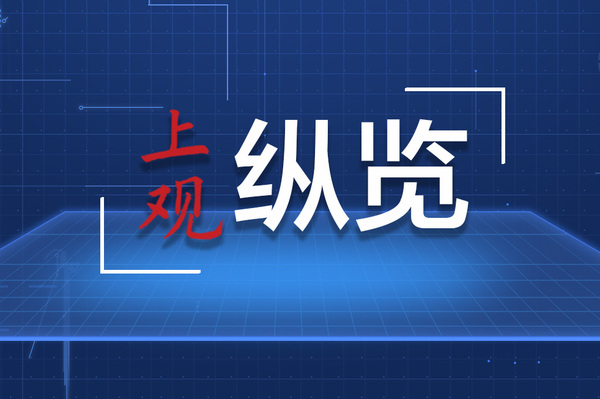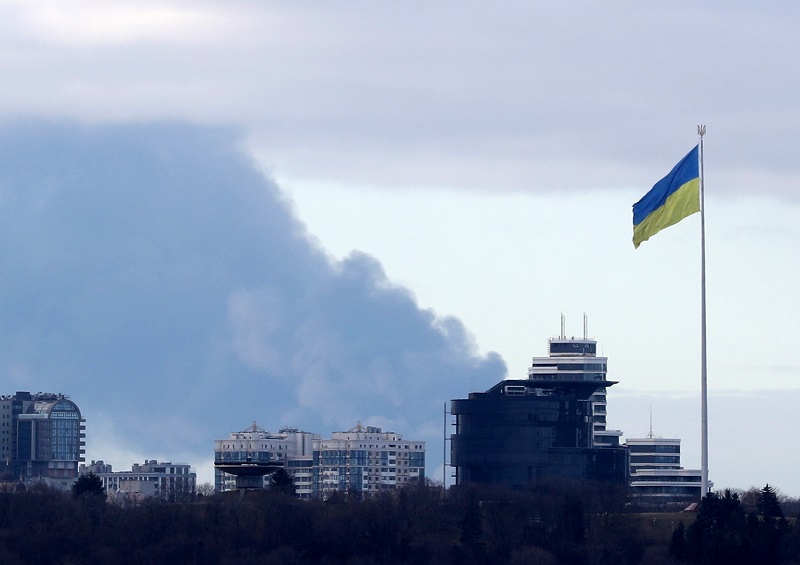Slash it upside down! Japan unexpectedly sued China at the WTO
According to media reports, Japan submitted a written rebuttal to the WTO on September 4th in response to China's emergency measures notice on August 31st regarding the complete suspension of imports of Japanese aquatic products. The document claims that China's suspension of imports is completely unacceptable, and Japan strongly urges China to immediately withdraw its measures. The document also states that Japan will continue to explain its position in relevant WTO committees. The Japanese Ministry of Foreign Affairs also issued another statement on the 4th, stating that China's import control measures are "extremely regrettable". Japan has requested discussions with China on this matter based on the content of the Regional Comprehensive Economic Partnership Agreement to promote the "immediate" lifting of controls. "Japan hopes that China can discuss with Japan as soon as possible and re-examine its measures in accordance with its obligations under the Regional Comprehensive Economic Partnership Agreement."
In response to Japan's possible appeal to the WTO, Chinese Foreign Ministry spokesperson Wang Wenbin previously stated that China has repeatedly expressed a serious stance on the issue of Japan's nuclear contaminated water discharge into the sea. The international community has generally criticized and taken relevant preventive measures against the selfish and irresponsible behavior of the Japanese government's forced discharge of nuclear contaminated water into the ocean. The competent authorities of the Chinese side take emergency measures against aquatic products originating from Japan in accordance with Chinese laws and regulations and relevant provisions of the WTO Agreement on the Implementation of Sanitary and Phytosanitary Measures, which is completely legitimate, reasonable, and necessary.
The Japanese government's strong push to discharge nuclear contaminated water into the sea is a disregard for public opinion and a shirking of its own responsibility. Environmental issues such as marine pollution are not only safety issues related to human health but also economic issues. Japan's strong discharge of nuclear contaminated water into the sea will not only severely impact its domestic aquaculture industry and related industries, but also bring hidden concerns to the global economy.
Article | Jiang Guoliang Professor at the School of Marine Life, Ocean University of China
Editor | Li Shen Outlook Think Tank
1
Typical marine environmental pollution behavior
So far, the practice of discharging nuclear contaminated water into the ocean is unprecedented.
The Fukushima Daiichi Nuclear Power Plant in Japan was photographed on August 24, 2023. Image: Xinhua News Agency/Faxin
The Convention for the Prevention of Marine Pollution by Dumping of Waste and Other Matter signed in 1972 and the United Nations Convention on the Law of the Sea signed in 1982 both prohibit the discharge of any form and quantity of nuclear pollutants into the ocean. The Japanese government's actions have constituted a typical act of marine environmental pollution and should bear corresponding international legal responsibilities.
The marine environment refers to the vast and continuous ocean and its total water body on Earth, including seawater, dissolved and suspended substances in seawater, seabed sediments, and marine organisms. It is the cradle of life and a treasure trove of human resources, and a blue home on which a large number of organisms rely for survival. The discharge of Japanese nuclear contaminated water into the sea will have a catastrophic impact on the marine environment that is difficult to assess.
The harm of Fukushima's dumping of nuclear contaminated water lies in the enrichment and contamination of radioactive materials after leakage. Radioactive materials stimulate the electrons in the inner layer of metal ions in biological cells, forming a chain reaction that becomes a point of radiation energy damage, causing indirect damage to biological molecules, resulting in DNA damage or chromosome breakage. Due to the diversification of various metal ions, the DNA damage or chromosome breakage caused by radioactive materials in the marine environment is more complex and difficult to predict, leading to unpredictable marine ecological disasters.
Radioactive materials can enter various levels of the marine ecosystem through water flow and biological pathways, which not only directly affects the survival and reproduction of marine organisms, but also disrupts the balance and stability of the marine ecosystem.

Radioactive materials will deposit in the sediment at the bottom of the ocean and be absorbed by benthic organisms. These radioactive substances gradually accumulate in fishery resources such as fish through the food chain transmission process. Over time, the fish caught by fishermen contain high concentrations of radioactive substances, which will have a heavy impact on fishery resources.
The ocean is the common property of all humanity, and forcibly launching the discharge of Fukushima nuclear contaminated water into the ocean is an extremely selfish and irresponsible act that ignores international public interests. Japan's actions are shifting risks to the world, continuing the pain to future generations, becoming a destroyer of the ecological environment and a global marine polluter, violating the health, development, and environmental rights of people of all countries, and violating its own moral responsibility and international legal obligations.
2
The economic intentions of the United States and Japan are questionable
Fukushima nuclear contaminated water began to be discharged into the ocean on August 24th, and this discharge process will continue for 30-40 years. The direct impact of nuclear contaminated water on fishery production is the reduction of fishery resources and the decline in quality, leading to a decrease in fishery income; The indirect impact is a decrease in public trust in fishery products, leading to a decrease in market demand. All of these will bring serious economic losses to fishermen and fishing enterprises.
Japan releases nuclear contaminated water towards.
In 2022, China's marine fishing output value was 248.891 billion yuan, and the marine aquaculture output value was 463.884 billion yuan, accounting for about 40% of the world's seafood output value, while Japan and the United States each accounted for about 5%. The discharge of Japanese nuclear contaminated water into the sea has the greatest impact on China's marine aquaculture industry. Consumers, out of consideration for food safety, will reduce or even give up their consumption of seafood, thereby affecting the entire marine industry chain, such as traditional shipbuilding, fishing, aquaculture, processing, and circulation industries, especially the emerging marine industry.
TEPCO is the world's largest private nuclear power operator, with two of its top three shareholders being Wall Street Jewish Capital, BlackRock Investment Bank, and Pioneer Navigation. TEPCO is a Japanese nuclear power company that actually represents the interests of American and Japanese capital.
Even more eerily, on August 9, 2023, before the discharge of nuclear contaminated water, the Department of Fisheries of the National Oceanic and Atmospheric Administration of the United States released its first National Seafood Strategy, which emphasized NOAA's firm commitment to the resilience of the seafood industry, including measures to support national fisheries development in climate change, market disruption, and new ocean utilization, while maintaining alignment with the economic recovery, environmental sustainability, and climate resilience goals of the Biden Harris administration.
This raises suspicions about the economic intentions of the United States and Japan behind the sea discharge behavior.
3
Confusing the public and openly violating scientific principles
In the past two years, the international community has raised questions about the legitimacy of the plan to discharge nuclear contaminated water into the sea, the reliability of Japanese data, the effectiveness of purification devices, and the controllability of environmental impacts. Faced with doubts, the Japanese government refuses to engage in genuine international cooperation and supervision, not only deliberately avoiding these issues, but also making false promises and trying to conceal and mitigate the harm.

On August 18, 2023, citizens gathered in front of the Prime Minister's residence in Tokyo, Japan to protest against the Fukushima nuclear contaminated water discharge plan. Image: Photo by Xinhua News Agency reporter Zhang Xiaoyu
The entire process of Japan's nuclear contaminated water discharge into the sea is full of betrayal of the spirit of science. At the scientific level, it has been proven that there is no safety threshold for the hazards of radioactive isotopes. It can be considered that the fewer radioactive atoms there are, the lower the probability of causing harm. But it cannot be said that if it falls below a certain threshold, there will definitely be no harm and no safety threshold.
This is because the harm of radioactive isotopes comes from two biological effects produced by their ionizing radiation: deterministic effects and stochastic effects. Deterministic effects refer to the severity of the effect that is dose dependent, and the severity of the effect is related to the number or percentage of damaged cells in the cell population. This effect has a dose domain value, and the reduction of white blood cells, cataracts, hair loss, and skin erythema after nuclear radiation are all deterministic effects. The random effect refers to an effect whose probability of occurrence increases with the increase of radiation dose, but its severity is independent of the radiation dose. There is no dose threshold for this effect. As long as the body is exposed to ionizing radiation, even if the dose is small and the incidence is low, random effects may occur, and the random effects increase with the number of ionizing radiation. Genetic mutagenesis and induction of cancer are random effects.
Tokyo Electric Power dilutes polluted water with seawater and uses tritium concentration as the emission indicator, which cannot change the reality that about 1.5 million tons of water containing radioactive substances will be discharged into the world's oceans from the Fukushima Daiichi Nuclear Power Plant. Untreated nuclear contaminated water contains more than 60 radioactive elements such as tritium and carbon-14, potassium 40, strontium 90, iodine 129, cesium and plutonium isotopes, and the half-life of these radioactive substances varies. For example, the half-life of cesium-137 is as long as 30 years, and the half-life of iodine-129 can even reach 15.7 million years. Therefore, the impact of these radioactive substances on the environment is quite profound.
The Japanese government and relevant media have always advocated using the tritium content in the discharge of nuclear contaminated water as an indicator, that is, equating the discharge of radioactive elements with the discharge of general chemical substances. If promoted in this way, all nuclear pollution can be diluted with seawater to a certain concentration to meet the discharge requirements. The standard of this substitution concept can even be extended to all environmental emissions, which is a blatant violation of scientific principles and confusing the public.
four
The long planned "established policy"
If we trace the poor performance and decision-making process of the Japanese government and Tokyo Electric Power Company before and after the discharge of nuclear contaminated water into the sea, we can clearly see that discharging pollutants into the sea is their long planned "established policy".
Since the serious accident at the Fukushima Daiichi nuclear power plant in March 2011, a large amount of high concentration nuclear contaminated water has been produced daily due to water cooling and melting of the core, as well as contact with nuclear fuel residues such as rainwater and groundwater. In April 2011, Tokyo Electric Power Company, the operator of the nuclear power plant, intentionally discharged contaminated water into the sea, which caused high social concern and concerns from all parties. In December of the same year, TEPCO announced that it had developed a plan to discharge "low concentration polluted water" into the sea, and its use of the term "low pollution" was becoming increasingly apparent, with the intention of discharging pollutants into the sea. The conspiracy to harm the world had already begun to emerge.
In March 2013, the key facility for treating nuclear contaminated water, the "multi nuclide treatment system" of Dongdian, was put into trial operation,; But since then, there have been continuous problems and frequent water leaks. In 2018, it was exposed that radioactive substances such as strontium in the treated water still exceeded the standard. In 2021, it was found that nearly half of the exhaust filter screens used to adsorb radioactive substances were damaged.
Since ALPS was put into operation, the Japanese side has replaced the concept of treated nuclear contaminated water with "treated water". In August 2018, the committee held hearings in Fukushima and Tokyo under the pretext of listening to public opinions, but in reality, it was to endorse the plan to discharge nuclear contaminated water into the sea, and the conspiracy to unilaterally discharge nuclear contaminated water into the sea was exposed. At the hearing, Toyoshi Morita, the then chairman of the Japan Atomic Energy Regulatory Commission, insisted that "discharging into the sea is the only feasible option" despite being questioned by various parties, and made no secret of his attempt to discharge sewage into the sea even if the technical indicators were not met. In April 2021, the Japanese government ignored domestic and foreign objections and unilaterally announced that it would implement nuclear contaminated water discharge into the sea in 2023. On the afternoon of August 24, 2023 local time, Japan initiated the discharge of contaminated water from the Fukushima Daiichi nuclear power plant into the sea. The contaminated water flowed into the Pacific Ocean through a 1-kilometer underwater tunnel. Before and after the discharge, Japanese official media repeatedly emphasized that the discharge of nuclear contaminated water met the standards for mineral water. However, according to the footage returned from the scene, both the operators and on-site media reporters were wearing nuclear pollution protective clothing, indicating that Japan's claim was unfounded.
The issue of nuclear contaminated water treatment has exposed that the Japanese government and Tokyo Electric Power Company are habitual offenders in fraud, and on the other hand, it indicates that nuclear testing is still very difficult. In short, it is still a confusing account of what and how many radioactive elements are still present in the contaminated water of Fukushima nuclear power plant.
In addition, more than 1.3 million tons of nuclear contaminated water currently stored in over 1000 tanks in Fukushima come from different periods of the Fukushima accident. Due to the constantly changing conditions of the reactor, the wastewater discharged at different times also varies. The nature of wastewater stored for 10 years and stored for a week may also vary. To treat these wastewater in a normal and compliant manner, it is necessary to inspect the detailed composition of each tank before evaluating its degree of harm and treatment plan. However, the process and testing of nuclear contaminated water treatment in Japan, as there is no international third-party direct sampling and monitoring, can only be a one-sided statement from the Japanese government and relevant departments on the situation of nuclear contaminated water being discharged into the sea.

five
Jointly strengthening maritime cooperation
As spokesperson for the Ministry of Foreign Affairs, Wang Wenbin, stated at a regular press conference, the disposal of contaminated water from the Fukushima nuclear power plant in Japan is a major nuclear safety issue with cross-border implications and is not a personal matter of Japan alone. The Japanese government has not proven the legitimacy and legality of the decision to discharge into the sea, the long-term reliability of the nuclear contaminated water purification device, the true accuracy of the nuclear contaminated water data, the harmlessness of the discharge to the marine environment and human health and safety, the completeness and effectiveness of the monitoring plan, and full consultation with stakeholders. The Japanese side has discharged nuclear contaminated water and placed itself in an international dock, which will inevitably be condemned by the international community for a long time.
In this regard, it is recommended that our side strengthen cooperation with countries in the Central and Western Pacific, work together to increase the frequency and intensity of monitoring, conduct long-term detection and research on radioactive elements with longer attenuation periods, ensure the coverage and coverage period of monitoring and research, and ensure the food safety of the public. At the level of maritime cooperation, we can provide our ocean survey vessels, including maritime monitoring capabilities, to weak countries for leasing to monitor the Pacific Ocean.
According to the principles of the Convention on the Law of the Sea, damaged units can jointly or individually file a lawsuit with the Japanese government for compensation. For example, all companies and fishermen fishing in traditional fishing grounds in the Northwest Pacific invite experts to reassess, conduct long-term monitoring, and have the right to individually or collectively file lawsuits with the Japanese government for damages and compensation.
In addition, it is recommended to adjust the production technology and economic structure of marine fishing and aquaculture, such as increasing the deep-sea fishing capacity in areas such as Antarctica, the Arctic, South America, Africa, and the Indian Ocean that are minimally affected by Japan's nuclear wastewater discharge, and appropriately reducing the number of nearshore fishing vessels; Expanding the scale of industrialized marine aquaculture on land, increasing the variety of fish cultivated on land, and increasing the scale of freshwater aquaculture; Control the scale of marine ranches, increase the variety of short food chains, and reduce the variety of long food chains.




